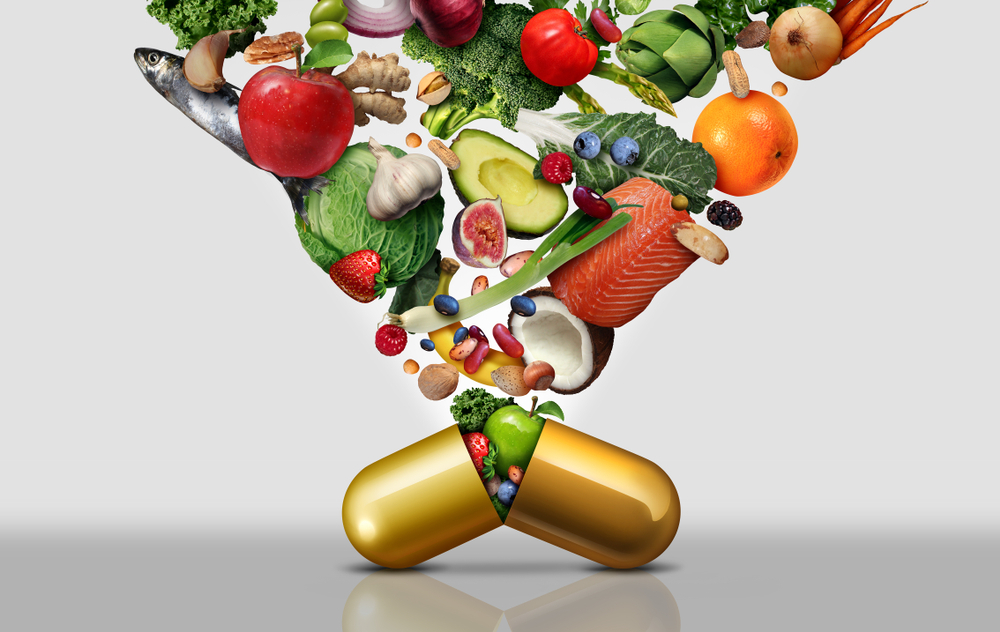Food supplements are especially in demand in winter. This is because there is a lack of light, air and often nutrient-rich food. But are extra vitamin and minerals necessary in the winter?
In winter, we often feel weak and lacking in energy. The reasons: There’s no light, so we tend to stay indoors, exercise less and eat more. Especially the nutrition leaves a lot to be desired by some people, there is often canned food or fast food on the table. And then it’s also the peak time for flu-like infections. Because cold viruses can multiply more easily in a cold nose.
Fortunately there are food supplements. Why don’t we take an extra portion of vitamins and minerals to be fitter and to arm ourselves against virus attacks. But which ones make sense? And does it even bring anything, or is it a waste of money? It all depends. Deficiencies are known to occur especially with vitamin D and folic acid.
Vitamin D
Vitamin D helps to incorporate calcium into the bones and strengthens the immune system. We absorb vitamin D through food such as mushrooms or oily fish, and we can form it in our skin if we get enough sun. But that is obviously not enough. A study carried out at the University Hospital in Hamburg-Eppendorf showed that around 80 percent of people in northern Germany are poorly supplied with vitamin D, while in southern Germany the figure is hardly any lower. On average, people have a lower vitamin D level in winter than in summer. If you are unsure, it is best to check your vitamin D status with your doctor. Especially for risk groups such as babies and elderly people, taking a vitamin D supplement is recommended. In general: get out during the day as often as possible. Light and fresh air, especially in combination with exercise, have many other positive effects on health and psyche, and these cannot be replaced by any tablet or dietary supplement.
Calcium
An essential task of the mineral calcium is to strengthen teeth and bones. But for the calcium to reach its destination, vitamin D is necessary – see previous point. Adults should consume 1000 milligrams of calcium per day. This works well over cheese and milk, but also over vegetables such as broccoli, kale and leek. Calcium-rich mineral water (at least 150 mg/litre) is also a good source. You can therefore save yourself a calcium pill.
Vitamin C
Vitamin C improves the functionality of the macrophages, protects the body from free radicals. Basically we are well supplied with vitamin C and therefore do not need an extra portion. The vitamin is found in many foods we eat every day, especially fruit, but also vegetables and potatoes. In winter exotic fruits take the lead, in summer berries. Just one grapefruit or half a papaya provides the recommended daily intake of 100 milligrams of vitamin C. For vegetables, 100 grams of Brussels sprouts or 80 grams of paprika are sufficient. Anyone who hopes to strengthen the immune system by taking a vitamin C preparation is on the wrong track. Even if you take vitamin C every day, it will not prevent a single infection. Only when you really have a cold can vitamin C slightly reduce the symptoms. A team of researchers from the University of Helsinki concluded that colds are milder and shorter if you take 200 milligrams of vitamin C a day. By the way, you can’t take vitamin C in stock – what the body doesn’t need, it excretes.
Folic acid
The B vitamin is important for cell division. Folic acid is found in green vegetables like broccoli, leek and Brussels sprouts. But beetroot, wholemeal and dairy products and meat are also good sources. In addition, leaf salads and herbs contribute to the supply. But: folic acid is very sensitive to light and heat, so we can easily be undersupplied, especially in winter, when we tend to eat heated food and less salad and herbs. Especially as the supply of fresh greenery is not abundant. We need 400 micrograms of folic acid daily, but experts advise against tablets, they do not work as well as food. An exception are pregnant women who are prescribed folic acid supplements for the development of the unborn child.
Iron
The trace element strengthens the immune system. Good vegetable sources of iron are sesame seed, millet, amaranth, linseed, lentils, pumpkin seeds, pistachios, tofu. But the body absorbs very little iron from these foods. To improve absorption, it is best to eat or drink something rich in vitamin C (pepper, cabbage, orange juice). And do not drink coffee or black tea with a meal or until about an hour later – they inhibit the absorption of iron. If iron is missing, you quickly feel weak. But whether too little iron is to blame for this can only be determined during a medical examination. Therefore, do not take iron supplements on your own.
Zinc
Zinc stimulates certain areas of the immune system. However, if cold viruses are already in the body, the trace element can at least limit their ability to multiply and their ability to dock with the nasal mucous membrane. A Cochrane study showed that taking zinc preparations for six months led to significantly fewer colds in children. However, the researchers are not yet able to say how much zinc must be taken as a preventive measure. And when taking zinc, side effects such as diarrhea and nausea can occur.

